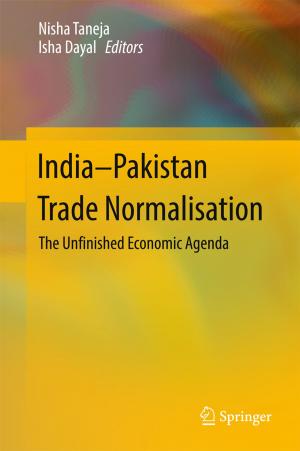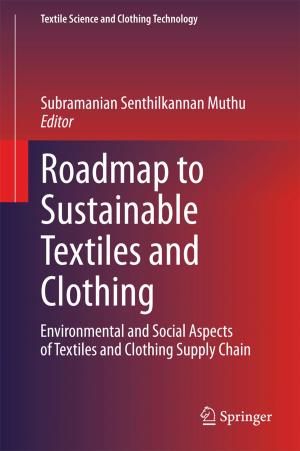Linking Sustainable Livelihoods to Natural Resources and Governance
The Scale of Poverty in the Muslim World
Nonfiction, Health & Well Being, Medical, Reference, Public Health, Social & Cultural Studies, Social Science, Sociology| Author: | Abdul-Mumin Abdulai, Elmira Shamshiry | ISBN: | 9789812870537 |
| Publisher: | Springer Singapore | Publication: | June 29, 2014 |
| Imprint: | Springer | Language: | English |
| Author: | Abdul-Mumin Abdulai, Elmira Shamshiry |
| ISBN: | 9789812870537 |
| Publisher: | Springer Singapore |
| Publication: | June 29, 2014 |
| Imprint: | Springer |
| Language: | English |
This book investigates the current level and trend of poverty in the Muslim World, including selected countries in Africa, the Middle East and Central Asia, East Asia, the Pacific and South America. Authors explore themes of poverty reduction, poverty alleviation and the extent of influences on social and economic development, particularly natural resource endowments (especially mineral resources) and their utilization. Chapters explore theory and practice, including governance and programmes, and take a detailed look at Zakat as a faith-based policy tool, to reduce poverty and improve livelihoods and thus contribute to better environmental stewardship. The final chapters look at development questions in the Muslim World and make policy recommendations, including a proposed multi-dimensional development collaboration model called the Development Collaboration Octagon Model (DeCOM). Readers will discover theoretical explanations of poverty and how poverty hampers the development of many nations because the poor are unable to partake actively in the development process. Poverty indicators and measurement are discussed, and trends of economic growth including productivity, manufacturing, trade patterns, investment and saving activity, and socio-economic developments are all explored: supporting data is presented in tables and figures, throughout this text. Authors explore the potency and success stories of public poverty alleviation strategies and programmes pursued in the Muslim world, especially the extent to which the institution of Zakat has been effectively incorporated into public poverty alleviation strategies. Policy options required to enhance social and economic development are proposed, to help pull the poor out of the poverty trap into the mainstream economy in the Muslim world. This work will appeal to anyone wishing to scrutinise poverty, its parameters and its relationship with the development of countries in the Muslim world. Scholars in the fields of economics, sociology, geography and Islamic studies will all find something of value here.
This book investigates the current level and trend of poverty in the Muslim World, including selected countries in Africa, the Middle East and Central Asia, East Asia, the Pacific and South America. Authors explore themes of poverty reduction, poverty alleviation and the extent of influences on social and economic development, particularly natural resource endowments (especially mineral resources) and their utilization. Chapters explore theory and practice, including governance and programmes, and take a detailed look at Zakat as a faith-based policy tool, to reduce poverty and improve livelihoods and thus contribute to better environmental stewardship. The final chapters look at development questions in the Muslim World and make policy recommendations, including a proposed multi-dimensional development collaboration model called the Development Collaboration Octagon Model (DeCOM). Readers will discover theoretical explanations of poverty and how poverty hampers the development of many nations because the poor are unable to partake actively in the development process. Poverty indicators and measurement are discussed, and trends of economic growth including productivity, manufacturing, trade patterns, investment and saving activity, and socio-economic developments are all explored: supporting data is presented in tables and figures, throughout this text. Authors explore the potency and success stories of public poverty alleviation strategies and programmes pursued in the Muslim world, especially the extent to which the institution of Zakat has been effectively incorporated into public poverty alleviation strategies. Policy options required to enhance social and economic development are proposed, to help pull the poor out of the poverty trap into the mainstream economy in the Muslim world. This work will appeal to anyone wishing to scrutinise poverty, its parameters and its relationship with the development of countries in the Muslim world. Scholars in the fields of economics, sociology, geography and Islamic studies will all find something of value here.















